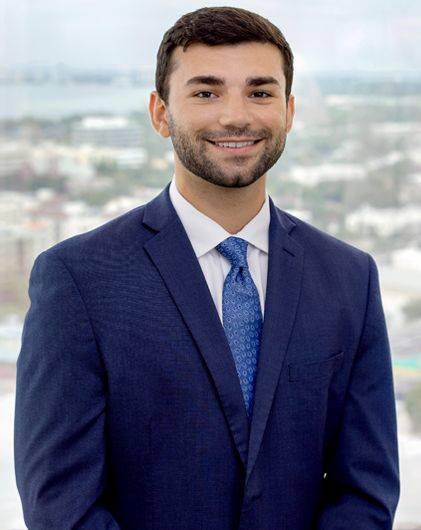Florida’s Proposed Legislation Targets Sweeping Tort Reform in July 2023
HB 837 was introduced in the Florida House of Representatives on Feb. 15. The bill seeks to create and amend critical principles underlying Florida’s tort statutes and governing case law, as well as to change the circumstances in which liability insurers may be subject to extra-contractual “bad faith” exposure. If passed, the bill will fundamentally change the litigation strategies of plaintiff and defense practitioners.
The bill includes several proposed changes to areas that have historically favored tort plaintiffs and policy holders. Some of these changes include:
-
- The governing discovery rules post-Worley applicable to plaintiff’s firms and their relationship with treating health care providers
- Requiring more stringent and detailed compliance for treatment being provided under a letter of protection
- Narrowing the admissibility of evidence to support a plaintiff’s claim for past and future damages
- Introducing a condition precedent to filing a lawsuit for third-party common law bad faith against a liability insurer
- Specifying that mere negligence is insufficient to constitute bad faith
- Providing for methods of distribution amongst two or more third-party claimants with claims arising out of a single occurrence that exceed policy limits that could insulate insurers from extra-contractual exposure
- Repealing Florida’s one-way attorneys’ fees structure in suits filed against insurers
- Changing Florida’s pure comparative fault system to a modified comparative negligence system
The below points summarize the notable provisions of the bill:
-
- Attorney-client privilege – Section 90.502, Florida Statutes, would be amended to expressly state that there is no attorney-client privilege for communications by an attorney to a client referring the client for treatment by a health care provider. Currently, these communications between the attorney and client are privileged under Worley and the body of case law adopting the same, including a 2021 case where the Supreme Court of Florida noted, “[W]e recognize the concern about what the Fourth District described as a post-Worley uneven playing field skewed in favor of plaintiffs when it comes to the discovery of financial-bias relationships between the parties . . . .” This change would end the “uneven playing field” post-Worley, since an insurers’ relationship and financial payments to its own medical expert is currently discoverable.
- Letters of protection and admissibility of unpaid medical bills and charges – Section 768.0427, Florida Statutes, would be created and require letters of protections (“any arrangement by which a health care provider renders treatment in exchange for a promise of payment for the claimant’s medical expenses from any judgment or settlement of a personal injury or wrongful death action”) to comply with certain requirements. These include:
- Itemized bills and codes
- Names of third-party factoring companies and the amount such companies purchased the accounts, including any discounts
- Whether the patient has health care coverage
- The name of the referral – including disclosure of the attorney – see above section permitting the same, if passed
Importantly, this new statute would structurally change the admissibility of evidence a plaintiff can offer to support a claim for past and future damages.
Under this proposed statute, a plaintiff who has or is eligible for health care coverage, but is treating with a provider under a letter of protection, will be limited to offering evidence of the amount which such health care coverage would be contractually obligated to pay (or what a third-party factoring company agreed to pay the provider) to satisfy any unpaid medical charges. Any amount in excess of this figure would be inadmissible. Currently, however, a plaintiff can “board” – or put differently, “show to a jury” – the total amount of unpaid medical bills issued through a letter of protection. This is most often higher than the negotiated rates agreed-to between the provider and a health insurance carrier, even if that plaintiff has health care coverage but opted not to submit the same for the treatment. As to future damages, a plaintiff would be limited to the amount of future charges the plaintiff’s health care coverage would pay for the same treatment (or Medicare reimbursement rate in effect at trial, if the plaintiff has no health care coverage).
-
- Conditions and standards for bad faith actions – Section 624.155, Florida Statutes, would be amended to require that as a condition precedent to filing suit for either statutory or common law bad faith, the Department of Insurance and the insurer must be given 60 days’ written notice of any alleged violation. Following such notice, the insurer would have an opportunity to “cure” the alleged bad faith. If the insurer’s alleged violation(s) are “cured” within the 60-day window, there would be no statutory or common law cause of action for bad faith. Currently, this 60-day “cure period” is only available for statutory bad faith claims. Accordingly, the bill would substantially reform third-party common law bad faith by giving liability insurers an opportunity to right any wrongs and barring a bad faith suit if the insurer remedies the alleged violation(s) within the 60-day window.
Additionally, the bill affirms that mere negligence alone is insufficient to constitute bad faith. The bill further provides that the insured, claimant, and their representatives also have a duty to act in good faith in furnishing information regarding the claim, making demands, setting deadlines, and attempting to settle the claim. While this duty does not create a separate cause of action for insurers, the trier of fact would be able to consider whether the good faith duties were breached by the insured, claimant, and/or their representatives and to reduce any damages awarded against the insurer accordingly.
-
- Distribution of proceeds when two or more third-party claims arising out of a single occurrence exceed policy limits – Section 624.155, Florida Statutes, would be amended to provide that if two or more third-party claimants make competing claims arising out of a single occurrence, which in total exceed the available policy limits, a liability insurer cannot be liable for an amount in excess of the available policy limits if, within 90 days after receiving notice of the competing claims, the insurer meets one of these requirements:
- Files an interpleader action, in which the trier of fact would determine each claimant’s prorated share of the policy limits
- Appoints a qualified arbitrator to determine each claimant’s prorated share of the limits in a binding arbitration
- Distribution of proceeds when two or more third-party claims arising out of a single occurrence exceed policy limits – Section 624.155, Florida Statutes, would be amended to provide that if two or more third-party claimants make competing claims arising out of a single occurrence, which in total exceed the available policy limits, a liability insurer cannot be liable for an amount in excess of the available policy limits if, within 90 days after receiving notice of the competing claims, the insurer meets one of these requirements:
Currently, if two or more competing third-party claimants cannot agree to a distribution of the available policy limits in settlement of all of their claims, there is no definitive mechanism by which a liability insurer can insulate itself from possible extra-contractual exposure. This proposed change, however, would allow a liability insurer to avoid such exposure by making the full policy limits available and leaving the distribution determination to a trier of fact or an arbitrator.
-
- Repeal of one-way attorneys’ fees – Currently, sections 627.428 and 626.9373, Florida Statutes, authorize Florida’s one-way attorneys’ fee structure. This entitles an insured to reasonable attorney’s fees in any lawsuit against an insurer in which any amount of recovery was awarded (with the exception of residential or commercial property insurers). The bill would repeal sections 627.428 and 626.9373 and effectively end one-way attorneys’ fees for claims against all insurers, including surplus lines insurers.
-
- Comparative fault – Currently, Florida operates under a pure comparative fault negligence standard. Under this standard, a jury will assess a percentage of fault attributable to each party which will offset the amount of damages that party may recover from the judgment. For example, if the jury found that a plaintiff was 80% at fault for the accident and the defendant was 20% at fault, the plaintiff can still recover 20% of the damages from the total judgement.
The bill would amend Section 768.81, Florida Statutes, and create a modified comparative scheme. This means that if a plaintiff is found to be more than 50% at fault, he or she cannot recover any damages. The principles from the pure comparative fault system would still remain, however, so if a plaintiff is found to be 49% at fault and a defendant 51% at fault, the plaintiff may recover 51% of the total damages awarded.
The bill was referred to two subcommittees, the Civil Justice committee and Judiciary committee, where it received its initial substantive evaluation by the Civil Justice committee on Feb. 24, 2023. The bill was received favorably and passed the first subcommittee by a vote of 12-6. The committees will determine whether the bill should be amended, pass or fail. If passed, the bill will move to other committees of reference or to the full House. The House then votes on the bill, and, if passed, it will go through the same process in the Senate. It may go back and forth until a consensus is reached. The final stage will place the bill in front of Governor DeSantis for his approval. The bill has a targeted effective date of July 1, 2023, assuming it passes all stages.
Phelps will continue to monitor this bill and provide updates. Please contact Evan Dahdah, Kristy Pantaleon or any member of Phelps’ Litigation or Insurance teams if you have questions or need advice or guidance.



